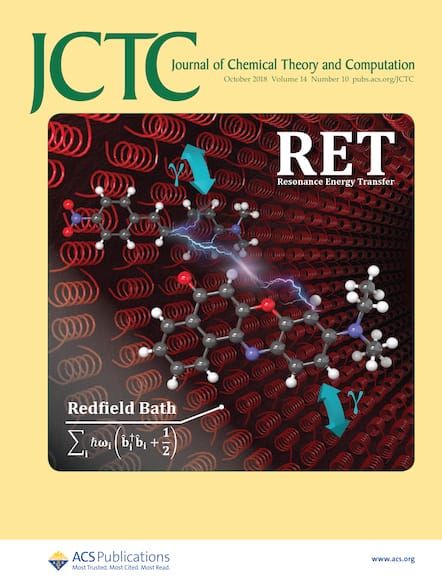火焰──快速、低储存、准确、记忆效率高的自适应取样──解决分子液体空间依赖动力学的方法。
IF 5.5
1区 化学
Q2 CHEMISTRY, PHYSICAL
引用次数: 0
摘要
软物质中的许多临界现象发生在大长度尺度上,需要在低波数下对其结构和动力学进行解析。然而,通过分子动力学模拟计算解决波数相关的动力学存在重大挑战,因为这些现象在时间和长度尺度上跨越几个数量级,导致高计算成本和内存需求。这项工作强调了与分析互反空间中的分子轨迹相关的计算和记忆挑战,并展示了一种解决这些问题的方法。我们介绍了火焰──快速、低存储、准确和内存高效的自适应采样,这是一种计算结构因素的直接方法,允许我们只选择所需数量的波向量进行分组。我们还使用与波数相关的时间步长来提取动态。我们的FLAMES方法有效地缓解了计算和内存/存储瓶颈。我们用不同温度下的液态辛烷值模型系统的模拟来证明这种方法。与实验数据和实际空间计算的比较表明,与基于均匀波矢量网格和固定时间间隔的方法相比,火焰技术在解析温度和空间相关动力学方面具有较高的精度,同时具有显著的计算效率和更少的内存和存储需求。本文章由计算机程序翻译,如有差异,请以英文原文为准。
FLAMES─Fast, Low-Storage, Accurate, and Memory-Efficient Adaptive Sampling─Approach to Resolve Spatially Dependent Dynamics of Molecular Liquids.
Many critical phenomena in soft matter occur at large length scales, necessitating the resolution of their structure and dynamics at low wavenumbers. However, resolving wavenumber-dependent dynamics computationally via molecular dynamics simulations presents significant challenges, as these phenomena span several orders of magnitude in both time and length scales, resulting in high computational costs and memory demands. This work highlights the computational and memory challenges associated with analyzing molecular trajectories in reciprocal space and demonstrates a method to address them. We introduce FLAMES─Fast, Low-storage, Accurate, and Memory-Efficient adaptive Sampling, which is a direct method for calculation of structure factors, allowing us to select only the required number of wavevectors for binning. We also use wavenumber-dependent time steps to extract dynamics. Our FLAMES approach effectively mitigates computational and memory/storage bottlenecks. We demonstrate the method using simulations of a model system, liquid octane, at various temperatures. Comparisons with experimental data and real space computation show that the FLAMES technique achieves high accuracy in resolving temperature- and spatially dependent dynamics while being significantly more computationally efficient and requiring less memory and storage than methods based on a uniform wavevector grid and fixed temporal spacing.
求助全文
通过发布文献求助,成功后即可免费获取论文全文。
去求助
来源期刊

Journal of Chemical Theory and Computation
化学-物理:原子、分子和化学物理
CiteScore
9.90
自引率
16.40%
发文量
568
审稿时长
1 months
期刊介绍:
The Journal of Chemical Theory and Computation invites new and original contributions with the understanding that, if accepted, they will not be published elsewhere. Papers reporting new theories, methodology, and/or important applications in quantum electronic structure, molecular dynamics, and statistical mechanics are appropriate for submission to this Journal. Specific topics include advances in or applications of ab initio quantum mechanics, density functional theory, design and properties of new materials, surface science, Monte Carlo simulations, solvation models, QM/MM calculations, biomolecular structure prediction, and molecular dynamics in the broadest sense including gas-phase dynamics, ab initio dynamics, biomolecular dynamics, and protein folding. The Journal does not consider papers that are straightforward applications of known methods including DFT and molecular dynamics. The Journal favors submissions that include advances in theory or methodology with applications to compelling problems.
 求助内容:
求助内容: 应助结果提醒方式:
应助结果提醒方式:


